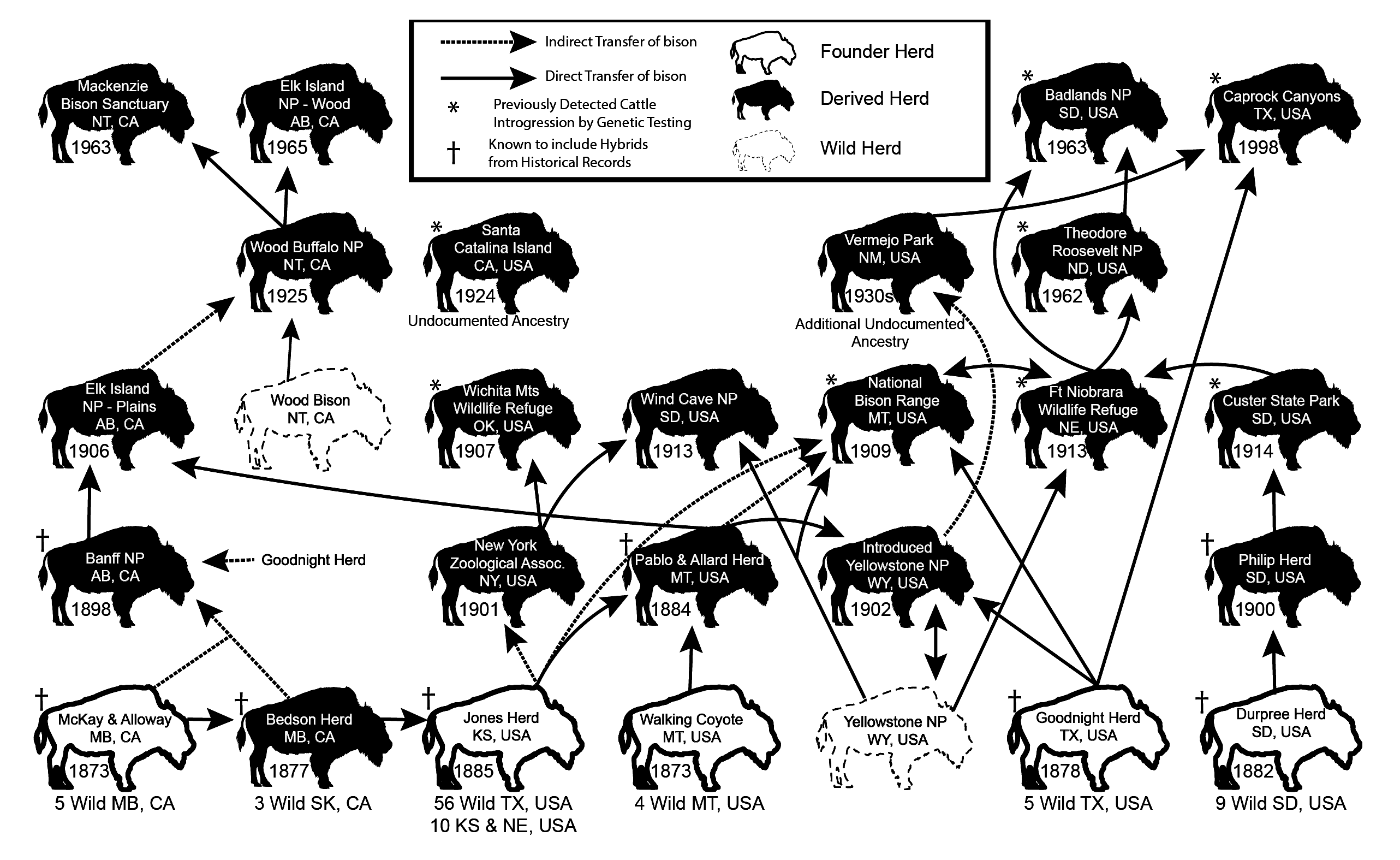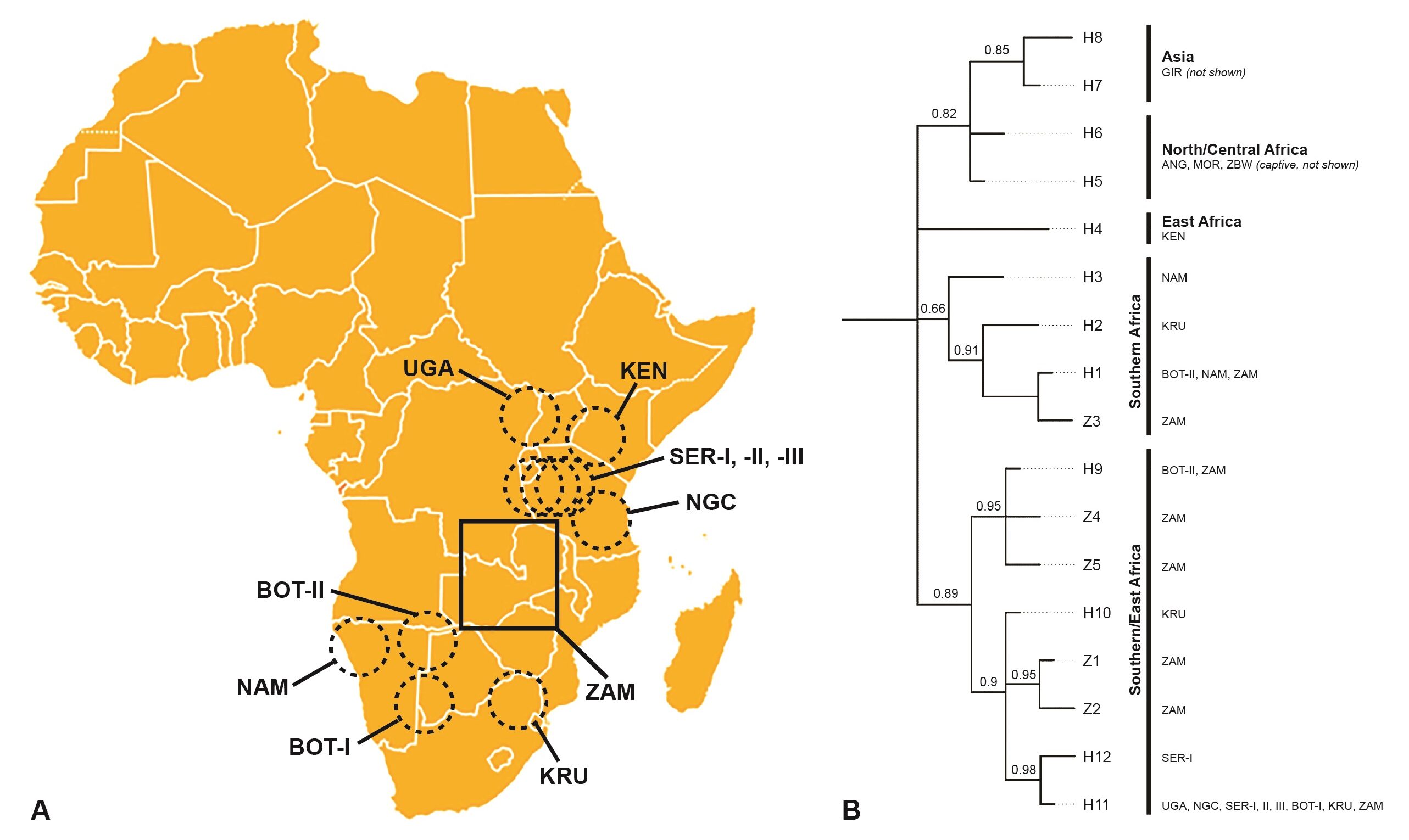What is Conservation Genomics?
Conservation genomics is a field of study that uses biotechnology to conserve and restore biodiversity. Within species, the level of genetic diversity is directly proportional to a species’ ability to adapt, survive, and thrive.
To date, one of the most detailed conservation genomics studies of any wildlife species focused on American bison. This species experienced a well-documented population decline between 1800 and 1900 that reduced its numbers by over 99%!
The spectacular recovery of over 700,000 animals present today is a testament to their genetic constitution and is recognized as one of the most significant accomplishments in modern conservation biology.
Some Past Projects
- Genomic Technology for North American Bison Conservation (Sam Stroupe)
- African Lion Conservation Genomics (Caitlin Curry)
- Uncovering the Genomic Signatures of Population Structure and Introgression in American Bison Bison (David Forgacs)
- Preserving Genetic Information of Wildlife Species (Jerad Dabney)
- Genetic Catalog of Huntable Wildlife Species of Africa (Floyd Barnes)
- The Utilization of Genetic Markers to Resolve Modern Management Issues in Historic Bison Populations: Implications for Species Conservation (Natalie Halbert)
- Sequencing the Genome of American Bison (Lauren Dobson)
- Assessment of Recent Bottlenecks: A Case Study of the Bering-Chukchi-Beaufort Seas Stock of Bowhead Whales (Alex Rooney)
- Developing DNA-Based Technologies in North American Bison: Parentage Testing, Linkage Mapping and QTL Scans (Robert Schnabel)
- An Evaluation of the Outcome of Interspecific Hybridization Events Coincident with Dramatic Demographic Decline in North American Bison (Todd Ward)


